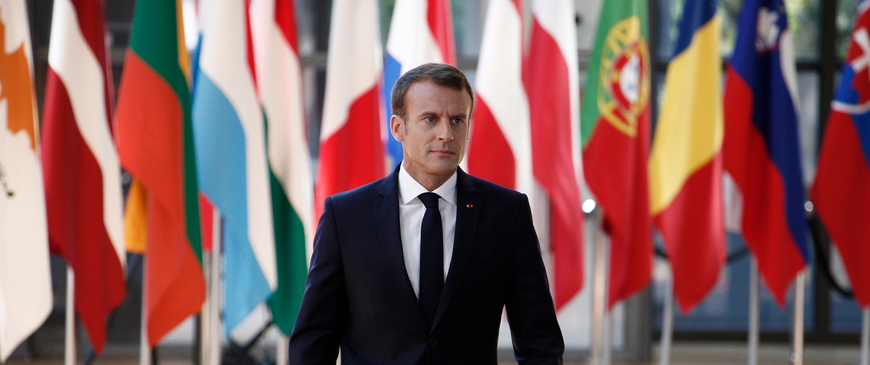
Macron and Le Pen rematch over France’s global voice: In the choir or a monologue
As Emmanuel Macron and Marine Le Pen prepare to face off in the final round of France’s presidential election, most French voters (like voters anywhere) will probably be thinking more about their own economic situation than events in other countries. Russia’s invasion of Ukraine may still be in the headlines, but after a month it is having to compete for space with domestic stories. For global observers, however, the two candidates are a test for France’s future foreign policy.
Macron is the candidate of continuity-plus: more defence spending, more military equipment, more European defence co-operation, but no great change of direction. Le Pen, by contrast, would mark a sharp break with the last few decades of French policy. She says that she will pursue a policy of “free hands”: leaving NATO’s integrated military command, ending defence industrial co-operation with Germany (which she says is to the detriment of France’s technological sovereignty and its industrial interests) and breaking EU rules she regards as contrary to French needs.
Le Pen’s policy towards NATO would deprive France of influence there (one of the two Supreme Allied Commander posts is always held by a senior French officer, with the other going to an American) and complicate NATO planning. As in the Cold War, no doubt France and its allies would find ways to navigate the problems, but at the cost of less effective decision-making.
Her rejection of defence industrial collaboration with Germany would cause the collapse of important joint projects for future combat aircraft and tanks – vital for France, as well as other European countries. The result would be fewer weapons systems procured, less cooperation between national forces and lost European defence industrial capability.
Her plans to ignore European laws she doesn’t like would cause chaos in the EU. Right up to the invasion of Ukraine, Le Pen and her party stayed close to Putin. There is a risk that as president she would veto EU sanctions or only apply them weakly – costing France support among Central and Eastern European countries.
A Le Pen win would do considerable damage to European security, but above all to France itself. Even for a nation faced with a stable security environment and no immediate threats, isolationism is a problematic policy. But the Russian invasion of Ukraine has reminded EU and NATO members of the importance of having partners who share each other’s values and are prepared to defend each other against threats.
Le Pen is not the first political leader to want to pursue a foreign policy unencumbered by allies. Donald Trump complained that NATO was obsolete and reportedly wanted to leave it.
After Brexit, Boris Johnson declared in the UK’s 2021 Integrated Review of Security, Defence, Development and Foreign Policy that the UK was now “free to tread its own path”. But, as the Prime Minister’s own hero Winston Churchill once said, “There is only one thing worse than fighting with allies, and that is fighting without them”. The UK has tried to compensate for giving up its seat at the EU table by investing more in NATO ties, and has quietly begun to co-ordinate with the EU on responding to the Russian attack on Ukraine.
Vladimir Putin, heavily outnumbered in the UN and with his economy suffering under the sanctions imposed by his most important trading partners, may wonder whether it was wise to go to war with no one but the Belarusian dictator Alyaksandr Lukashenka in his corner. Le Pen, if she wins the election, may also find that isolation isn’t so splendid.
Ian Bond is director of foreign policy at the Centre for European Reform.
